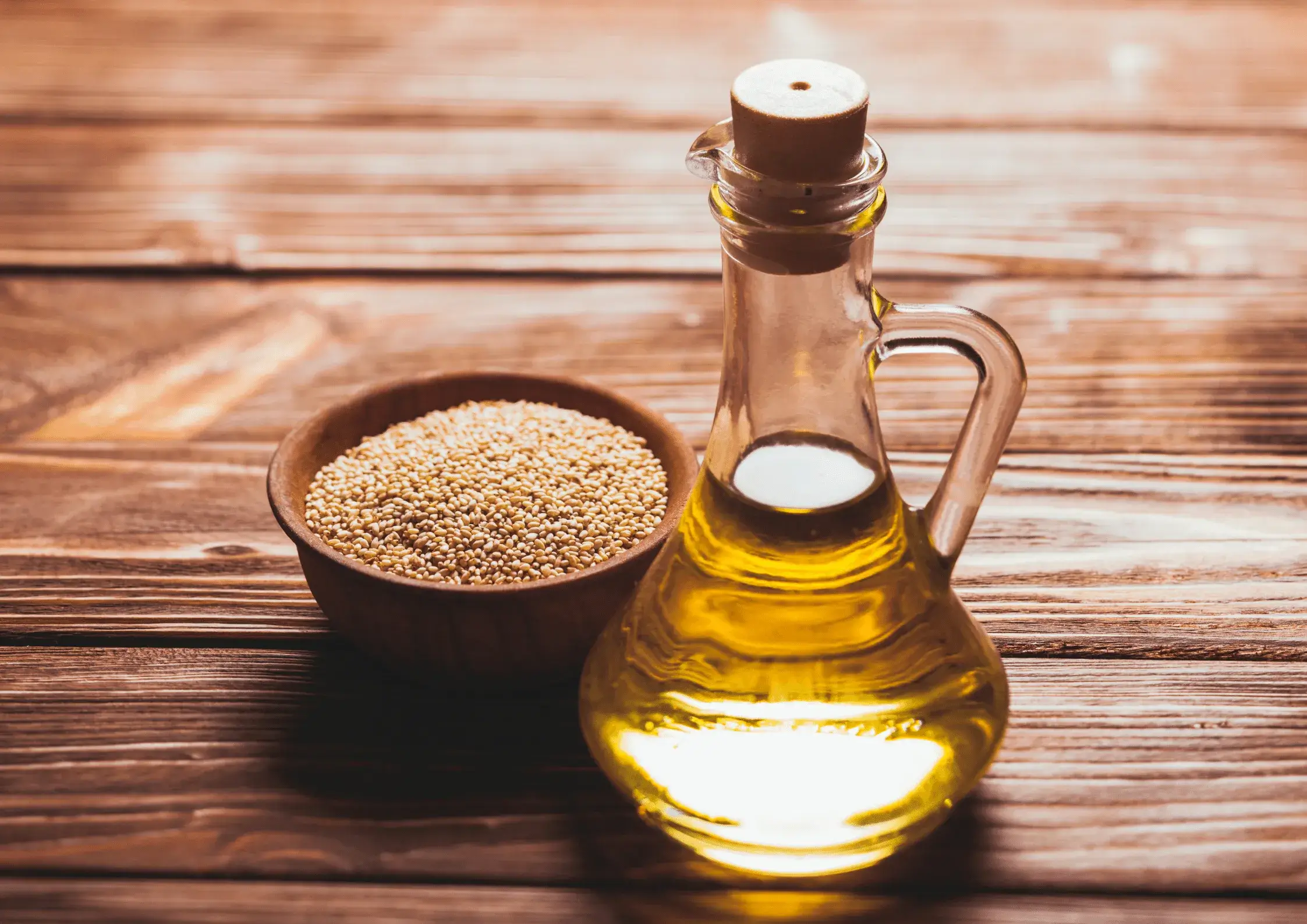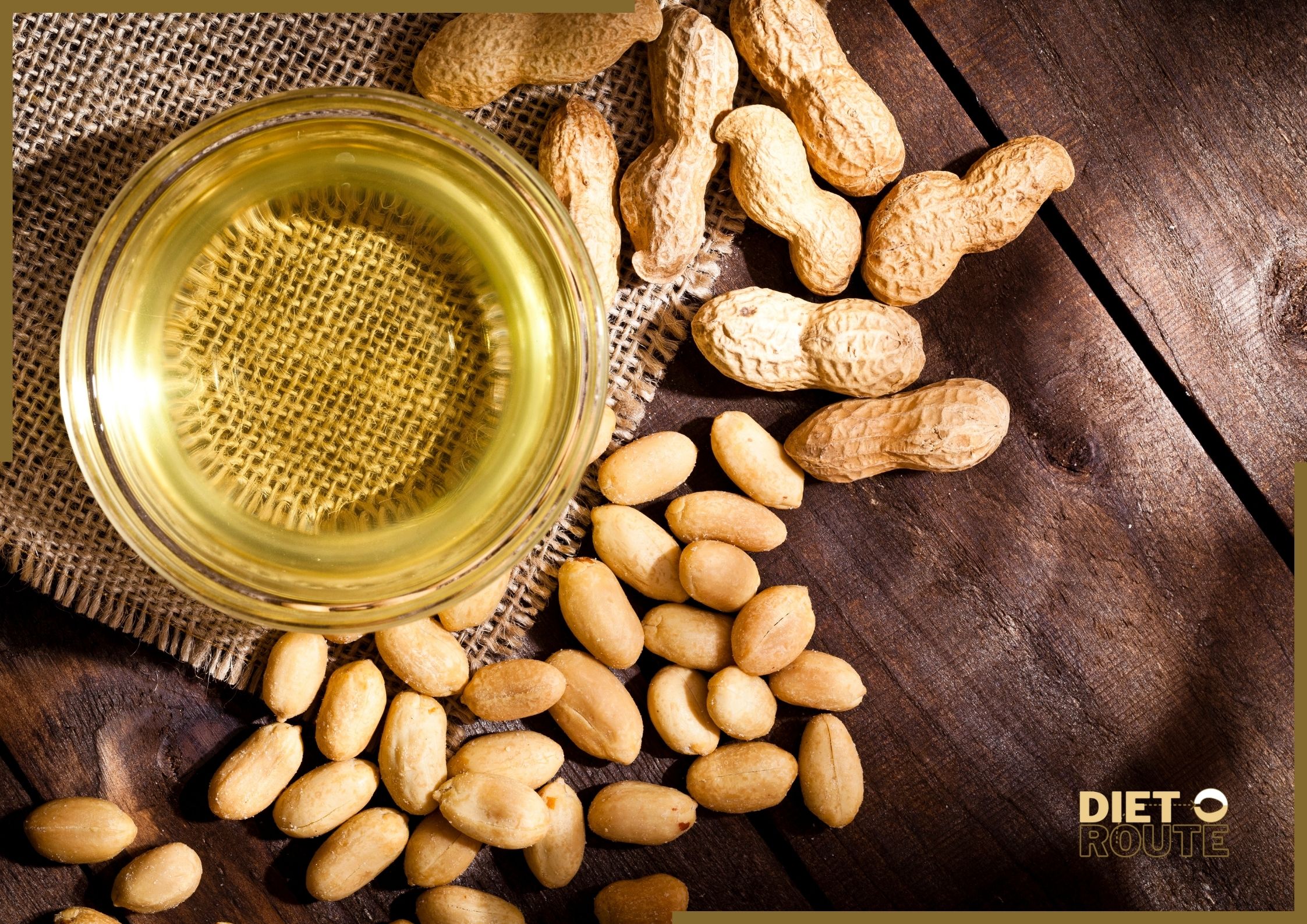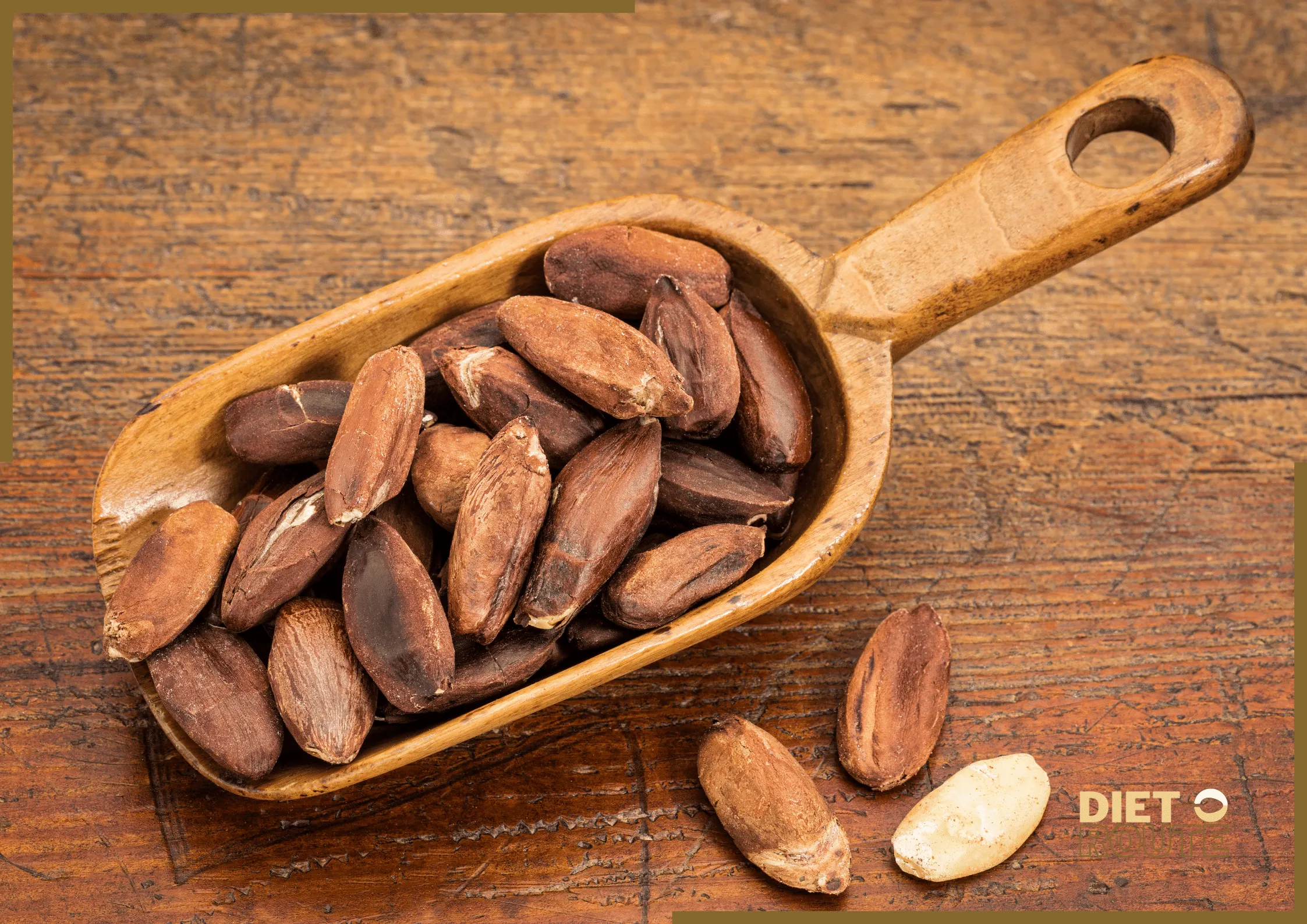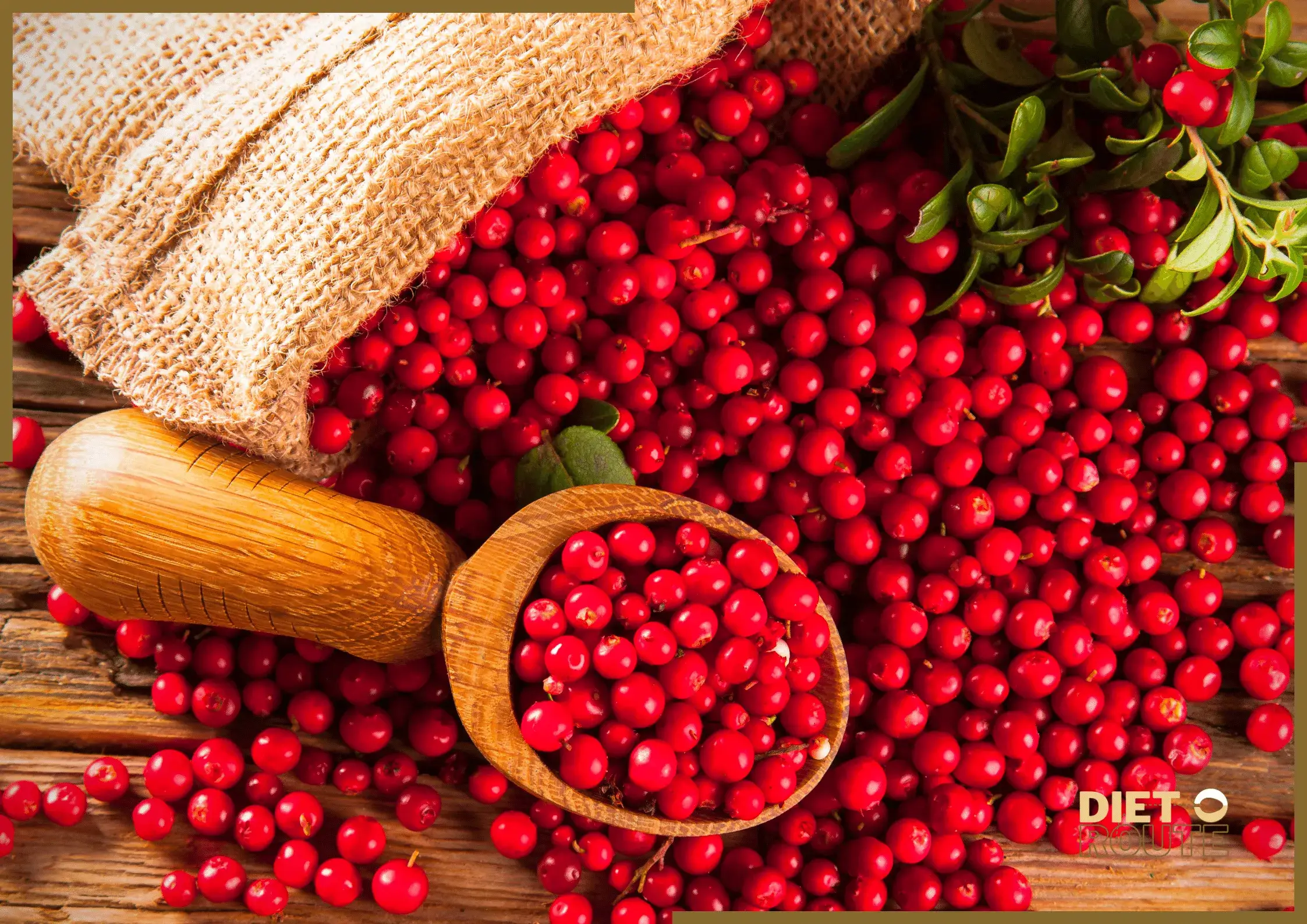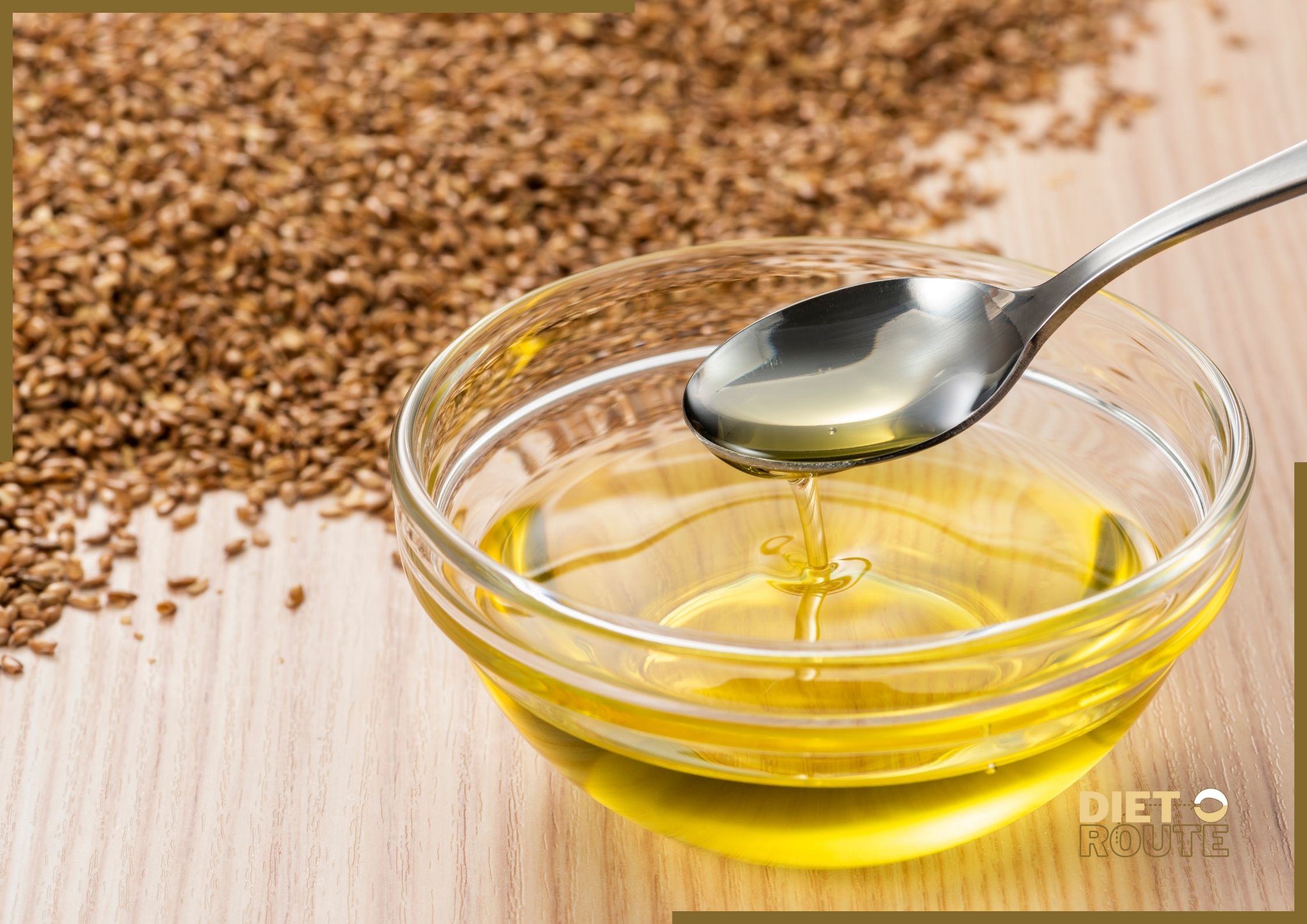Table of Contents
Introduction
Edible sesame oil, extracted from sesame seeds, is a flavorful and aromatic oil widely used in cooking and traditional medicine. It is popular in Asian cuisines and valued for its distinct taste and health benefits. In this article, we will provide a comprehensive overview of the nutritional value, including a table showcasing its approximate composition per 100 grams. We will also explore the pros and cons, address frequently asked questions, and help you make informed decisions about incorporating it into your diet.
Nutritional Value Approximately 100g
| Nutrient | Amount Per Serving (1 tablespoon) | % Daily Value |
|---|---|---|
| Calories | 120 | 6% |
| Total Fat | 14g | 18% |
| – Saturated Fat | 2g | 10% |
| – Trans Fat | 0g | |
| Monounsaturated Fat | 6g | |
| Polyunsaturated Fat | 5g | |
| Cholesterol | 0mg | 0% |
| Sodium | 0mg | 0% |
| Total Carbohydrates | 0g | 0% |
| – Dietary Fiber | 0g | 0% |
| – Sugars | 0g | |
| Protein | 0g | 0% |
| Vitamin E | 1.4mg | 9% |
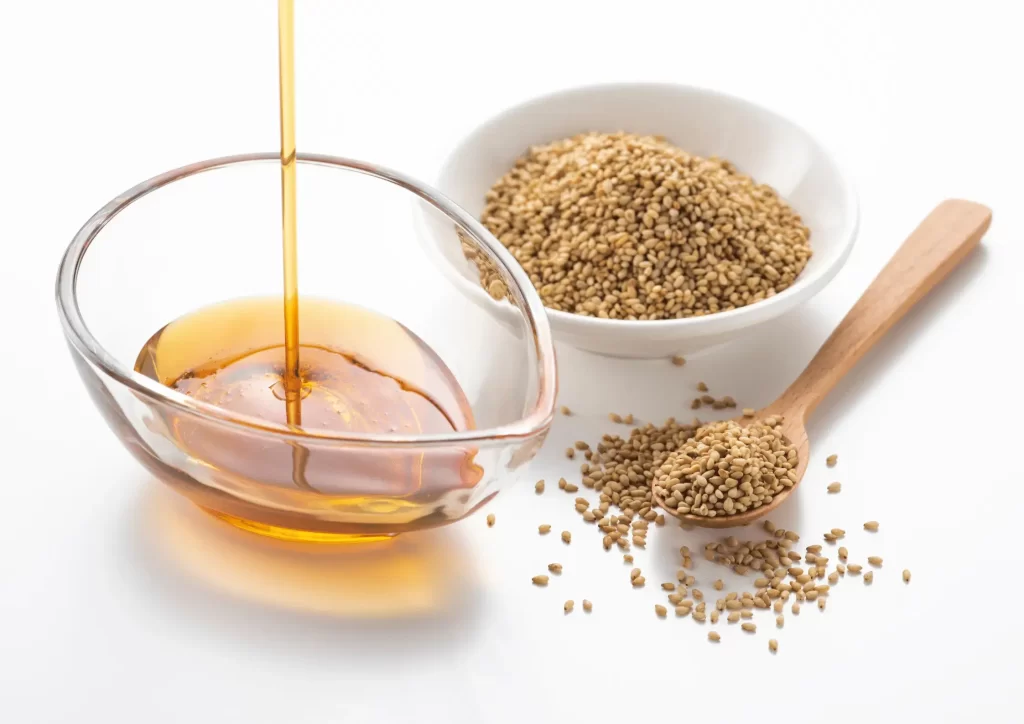
Pros
- Nutritional Profile: This oil is rich in healthy fats, antioxidants, and vitamin E, which can support heart health and promote healthy skin.
- Distinct Flavor: It has a unique nutty flavor that adds depth and aroma to dishes, making it a popular choice in various cuisines.
- Antioxidant Properties: It contains antioxidants, such as sesamol, which can help protect cells from oxidative damage.
- Versatile Uses: It can be used for cooking, dressings, marinades, and even as a flavorful finishing oil.
Cons
- High Calorie Content: It is calorie-dense, so it should be used in moderation, especially if you are watching your calorie intake.
- Allergenic Potential: Individuals with sesame seed allergies should avoid consuming sesame oil to prevent allergic reactions.
Frequently Asked Questions (FAQ)
1) Is sesame oil suitable for high-heat cooking?
Yes, it has a high smoke point and is suitable for stir-frying and sautéing.
2) Does sesame oil contain cholesterol?
No, it is cholesterol-free.
3) Can sesame oil help lower blood pressure?
It may have a positive impact on blood pressure levels when consumed as part of a balanced diet, but individual results may vary.
4) Is sesame oil rich in omega-3 fatty acids?
It contains a small amount of omega-3 fatty acids, but it is not a significant source. Other oils, like flaxseed oil, are better sources of omega-3s.
5) Can sesame oil be used for skincare?
It is often used in skincare products due to its moisturizing and antioxidant properties.
6) Can sesame oil be stored for a long time?
Properly stored oil can have a shelf life of up to one year. It is best to store it in a cool, dark place.
7) Does sesame oil have a strong aroma?
Yes, it has a distinct nutty aroma that adds depth to dishes.
8) Can sesame oil be used as a substitute for other oils?
Yes, it can be used as a flavorful substitute for other oils in recipes, but its strong taste may affect the overall flavor.
9) Is sesame oil suitable for individuals with gluten intolerance?
It is gluten-free and safe for individuals with gluten intolerance or celiac disease.
10) Can sesame oil cause allergic reactions?
While this oil is derived from sesame seeds, it is highly refined and typically safe for individuals with sesame seed allergies. However, those with severe allergies should exercise caution.
Conclusion
Edible sesame oil offers a unique flavor and a range of nutritional benefits. It is rich in healthy fats and vitamin E, making it a valuable addition to a balanced diet. However, moderation is key due to its high calorie content. Individuals with allergies to sesame seeds ought to avoid this oil. By understanding the nutritional content, pros and cons, and frequently asked questions, you can make informed decisions about incorporating it into your culinary repertoire. As always, consult with a healthcare professional or registered dietitian for personalized advice.
